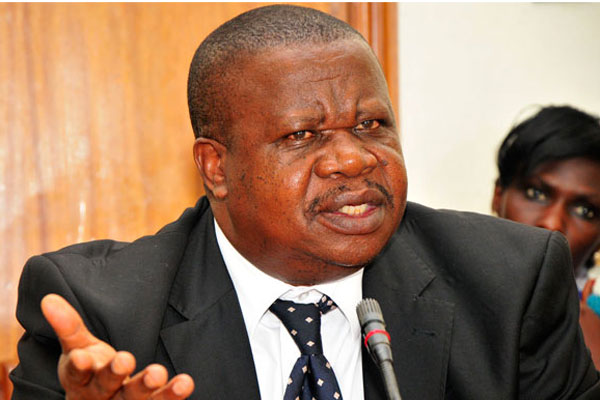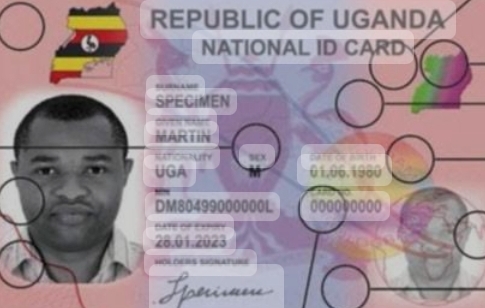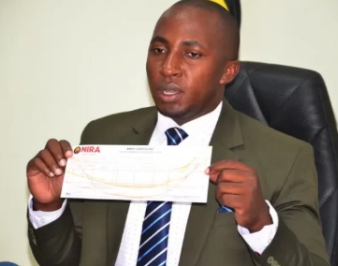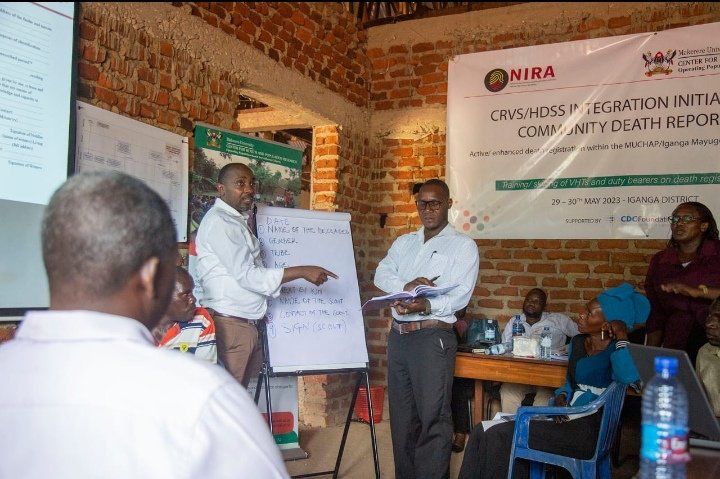The National Identification and Registration Authority (NIRA) will start a new round of the national identity card registration exercise for all Ugandans in June next year, as the current IDs expire in 2024.
The new National ID will contain several new features, but will contain most of the bio data already captured, including the current NIN.
The cards will be issued free of charge, except for those who will be seeking express processing.
The Internal Affairs Minister, General Kahinda Otafiire disclosed the details of the new ID plan while speaking to journalists at the government-owned Media Center on Tuesday.
He explained that the current National IDs have a life span of ten years, which is elapsing in 2024. Otafiire revealed that in 2024, the country will migrate to improved and user-friendly National IDs due to the improvement in technology and demands of modernity.
He explained that starting in 2014, they issued National IDs with a life span of 10 years knowing that there would be technological innovations requiring the change of features on the IDs.
“Your NIN does not cease. The bio-data that was captured does not change, we shall only improve the variables captured on your ID,” he told the press.
He revealed that all Ugandans will get the new national IDs free of charge, adding that only those in need of express national IDs can apply via the internet and pay a fee of sh50,000.
“We are doing our level best to make sure that every Ugandan is registered and given his identity and every child who is born is registered and given a national identification number and also given means of identity,” Otafiire stated.
He also said that his ministry is to make sure that NIRA reaches every parish and with time to every village so that Ugandans don’t have to move long distances to register for the national IDs.
The National Identity Cards are a prerequisite for opening Bank accounts, registration of sim cards, obtaining travel documents, voting, and registration for the National Social Security Fund -NSSF for those seeking formal employment.
To secure an ID, Ugandan law require that one produces a medical birth certificate, a citizen card showing that they are Ugandans by birth, information about their biological parents and family clans and their original residential location – a process that is so tedious that many avoid it.
Birth Registration programme
Joseph Biribonwa, the chairman board of directors of the National Identification and Registration Authority, said that Uganda will be celebrating Africa Civil Registration and Vital Statistics day (CRVS) on Wednesday 10th August under the theme; “Harnessing coordination, Country Leadership, and Ownership to strengthen Integrated Civil Registration and Vital Statistics system a vehicle for counting everyone.”
Biribonwa also said that NIRA partnered with the ministry of education and the directorate of basic education and secondary schools to raise awareness of the importance of birth registration through the annual national Music, Dance, and Drama activities.
Rosemary Kisembo, the executive director of NIRA, said that the authority will work with citizens and the ministries department to strengthen birth and death registration for national planning and equitable resource distribution.
She also said that birth registration is free and mandatory and urged parents to register their children at birth and register all deaths in their families.
NIRA was established in 2015 to create, manage, maintain and operate the National Identification Register, assign a unique National Identification number to every person in the register and issue national identification cards to nationals and aliens.
![]()




























